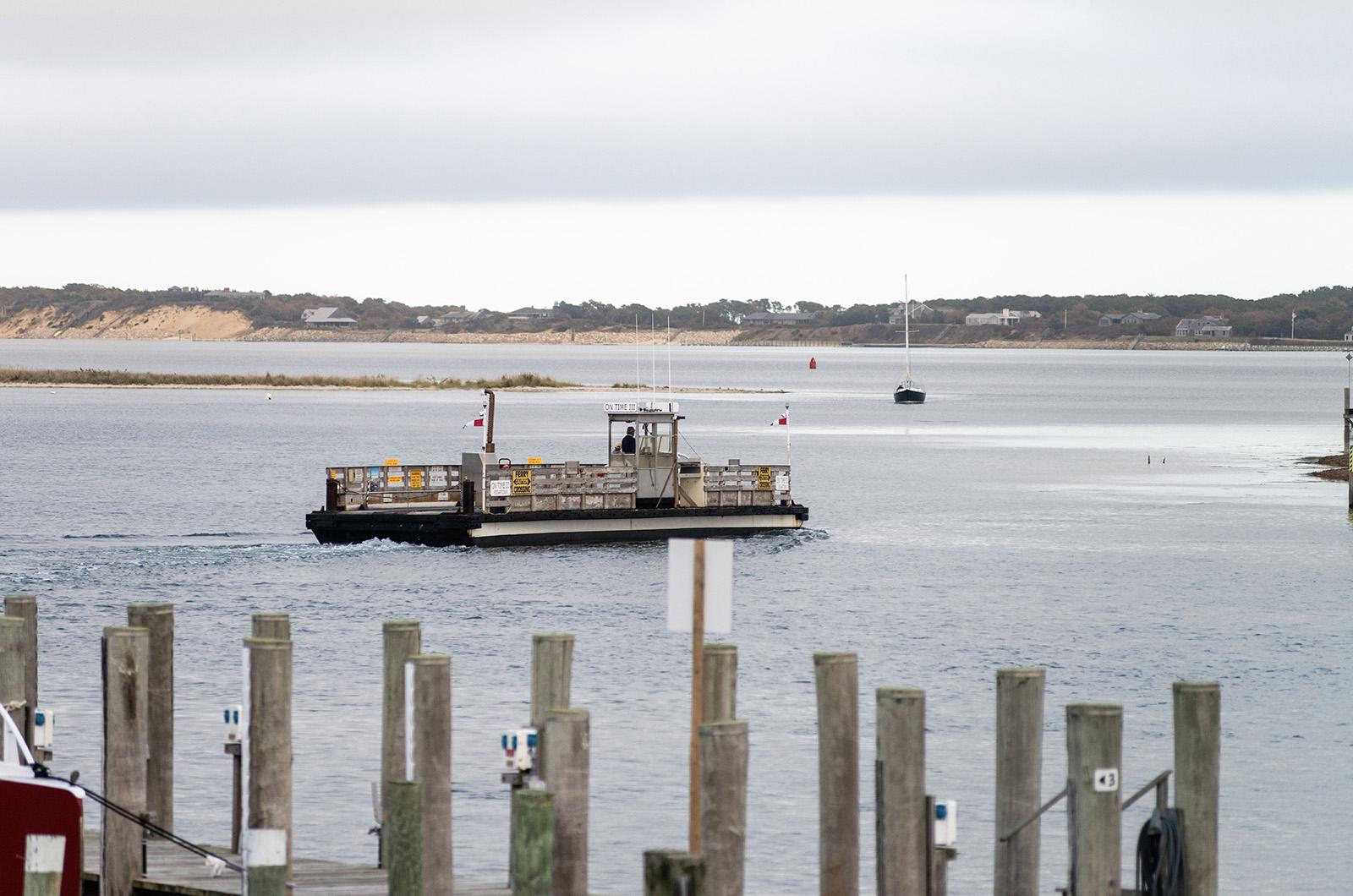In recent weeks, I have been at a loss for something to read when I find myself eating lunch or dinner alone. This is new to me. Over the years, I’ve become adept at eating with one hand, and holding my phone with the other. The New York Times and Washington Post have been my constant companions. But suddenly, I can’t bear to look at the little screen. The news only gets worse and worse.
The other day, though, a comforting thought occurred to me: “You know how to do this. Just imagine that you’re back on Chappy, living alone in the little red cabin by Cape Pogue Lighthouse.”
In 1971, I spent one of the best autumns of my life in that cabin, an old Coast Guard lifesaving station that Dr. Richard Parmenter and his wife, Bella, had converted into a tiny getaway. As they got older, they rarely ventured out to Cape Pogue from their larger house on Chappy, and Dr. Parmenter generously suggested that it would make a good bunkhouse for me and my best friend, David Tyler.
This was a rash offer. David and I were in our early 20s, with all the maturity that guys in their early 20s normally possess. Somehow, we didn’t burn the place down, even when we loaded too much coal into the potbellied stove on cold November nights.
David was in the Navy, and flew in from Norfolk, Va. on some weekends. He would circle his Cessna over Cape Pogue to let me know he was about to land at Katama Field. He kept a bicycle at the airfield, and had been a varsity athlete when we were in college together, but that didn’t mean he’d be knocking at the cabin door anytime soon. He had to ride to the Chappy Ferry, pedal up the paved road to the North Neck turnoff, navigate about two miles of sandy ruts to reach John Oliver Point, and then row half a mile out to Cape Pogue. Oh, and walk a quarter mile to the cabin. I’d be sitting outside, smoking my pipe as he walked up.
The cabin was delightfully isolated from the world. Fifty years ago, there was no SUV traffic zipping along the beach from the Dike Bridge to Cape Pogue. There were just seagulls, nesting by the thousands.
When Dr. Parmenter first gave me a tour of the cabin, he did a surprising thing: he took a book down from a little shelf and put it on the table.
“You’ll want this when you’re eating alone,” he said.
It was Conan Doyle’s Adventures of Sherlock Holmes. Each story was a 20-minute, lunchtime read.
Pointing up to the rafters, he showed me a thin wire that ran the length of the cabin, and dangled over the table.
“Connect that to the antenna of your radio and you’ll always have company,” he said.
Dr. Parmenter, who was coordinator of research at Cornell University, was a kind man. He could tell that I was a little lost, at 23 years old.
By October, though, I felt like I had found my place on the planet. Each evening, after working as a handyman on Chappy, I would push my rowboat into the water at John Oliver Point and head home to Cape Pogue. If it was already dark, the lighthouse would guide me.
I was Henry David Thoreau at Walden Pond — with a radio.
The old lifesaving station was a simple affair, about 16 feet wide and 30 feet long. There was no electricity and no bathroom. We were on the kerosene plan: kerosene lamps in the main room and a kerosene stove in the tiny kitchen. A hand pump in the kitchen supplied drinking water. If you wanted water for a shower, well, keep pumping. Fill a bucket and take it outside. There was a privy out back, near a pile of coal.
Supper was a simple affair, too: a large can of Dinty Moore beef stew and a cup of instant coffee. Before bed, I enjoyed going out for a long walk over the open moors. There were few trees in those days. The stars, as everyone who lives on the Vineyard knows, were at my fingertips.
I have never known such peace. I desperately wish I could experience even a few moments of that peace right now, in this winter of our discontent. One man’s kindness, and his willingness to share what he possessed to a young man, allowed me to sit with some personal grief and then gather the strength to go on. It was a testament to those good old-fashioned values of kindness, truthfulness and a willingness to share with others.
I left Cape Pogue in late November of that year; I was freezing to death out there, and ready to rejoin the world. And yet I return often, in my mind, when I need some extra comfort to face the present day.
As the year begins, may we all find our way back to that place that lies in our hearts — a quiet spot where we can see the stars and healing can happen.
Tom Harmon is a writer who lives in New Mexico.




Comments (17)
Comments
Comment policy »